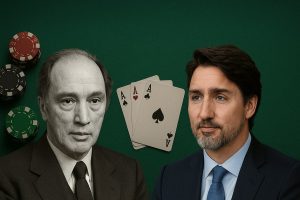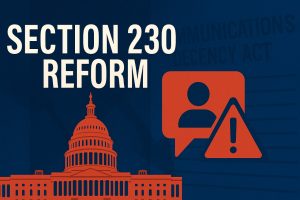Pierre Trudeau’s Blackjack Rumor vs. Justin Trudeau’s Gambling Ad Crackdown

A persistent, yet unsubstantiated, rumor links former Canadian Prime Minister Pierre Trudeau to card counting in Montreal casinos during his early legal career. This alleged personal history stands in apparent contrast to the public policy stance of his son, Justin Trudeau, whose government, while overseeing an expansion of legal gambling, supported efforts to curb aggressive sports betting advertising. But is this contrast a matter of hypocrisy, a lesson learned across generations, or simply a comparison built on an unproven premise?
The “Blackjack Brain” Rumor: More Myth Than Fact?
The intriguing notion of Pierre Trudeau, the charismatic and intellectual former PM, secretly being a skilled card counter known as the “Blackjack Brain” in Montreal casinos captures the imagination. However, a review of available credible sources reveals no evidence to support this rumor.
The provided references include general information about Montreal, its airport, restaurants, and casinos, along with articles detailing Canadian gambling laws and political events. While some discuss gambling activities or Montreal nightlife, none mention Pierre Trudeau in connection with card counting, blackjack, or regular visits to casinos like the Casino de Montréal in his early career or at any other time.
This rumor appears to be an unsubstantiated anecdote or urban legend, lacking any historical or journalistic foundation in the available information.
Justin Trudeau’s Approach: Expanding Gambling While Curbing Ads
In contrast to the unproven claims about his father, Justin Trudeau’s record on gambling policy is clearly documented. During his tenure as Prime Minister, his government presided over significant changes in the Canadian gambling landscape. Notably, single-event sports betting was legalized federally in 2021, paving the way for provinces to expand their iGaming markets, including platforms offering the fastest payout casinos.
Despite this expansion under his leadership, Justin Trudeau and the Liberal Party have been characterized among the more prominent opponents of expanded legal gambling activities generally. This caution became particularly evident in the debate surrounding the proliferation of sports betting advertisements that followed legalization.
Concerns grew significantly about the volume, nature, and potential impact of gambling ads, especially on youth and vulnerable populations. This led to cross-party support for greater regulation. Bill S-269 was introduced, aiming to create a national framework for regulating these ads, with potential for significant restrictions or even a ban. While this bill ultimately stalled with Trudeau’s resignation and the proroguing of Parliament, it reflected a clear political will, supported by the Trudeau government, to address the negative externalities of expanded gambling advertising.
The Alleged Contrast: Hypocrisy or Lesson Learned?
The narrative of a father who gambled versus a son who opposes gambling ads presents a compelling contrast, but it is fundamentally flawed based on the evidence:
Hypocrisy? Accusations of hypocrisy require the premise of Pierre Trudeau’s gambling history to be true. Since there is no credible evidence to support the “Blackjack Brain” rumor, this claim of hypocrisy on Justin’s part, based on his father’s alleged actions, is unfounded. Justin’s stance on advertising is a policy choice addressing documented societal concerns, independent of his father’s unproven past.
Lesson Learned? Similarly, interpreting Justin’s policy as a “lesson learned” from his father’s rumored gambling also relies on the unsubstantiated premise. While societal attitudes towards gambling harms have evolved, influencing policy, there is no basis to link Justin’s caution regarding betting ads specifically to any personal experience or knowledge of his father’s alleged gambling activities. It is pure speculation.
Conclusion
The captivating story of Pierre Trudeau as a card-counting “Blackjack Brain” in Montreal appears to be an unsubstantiated rumor, lacking any credible support in historical or journalistic records.
In contrast, Justin Trudeau’s position on sports betting advertisements is a matter of public record. While his government oversaw the legalization of single-event betting, it also responded to growing concerns about the impact of gambling ads by supporting regulatory efforts.
Therefore, the perceived contrast between father and son – framed as either hypocrisy or a lesson learned – is not supported by evidence regarding Pierre Trudeau’s alleged gambling activities. Justin Trudeau’s policy reflects contemporary concerns about gambling harms and advertising saturation, distinct from the unverified tales of his father’s past. The “Blackjack Brain” remains an unsubstantiated legend, while the debate over betting ads is a documented chapter in recent Canadian policy.
